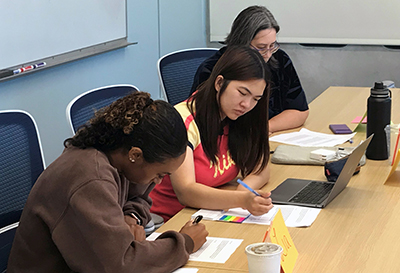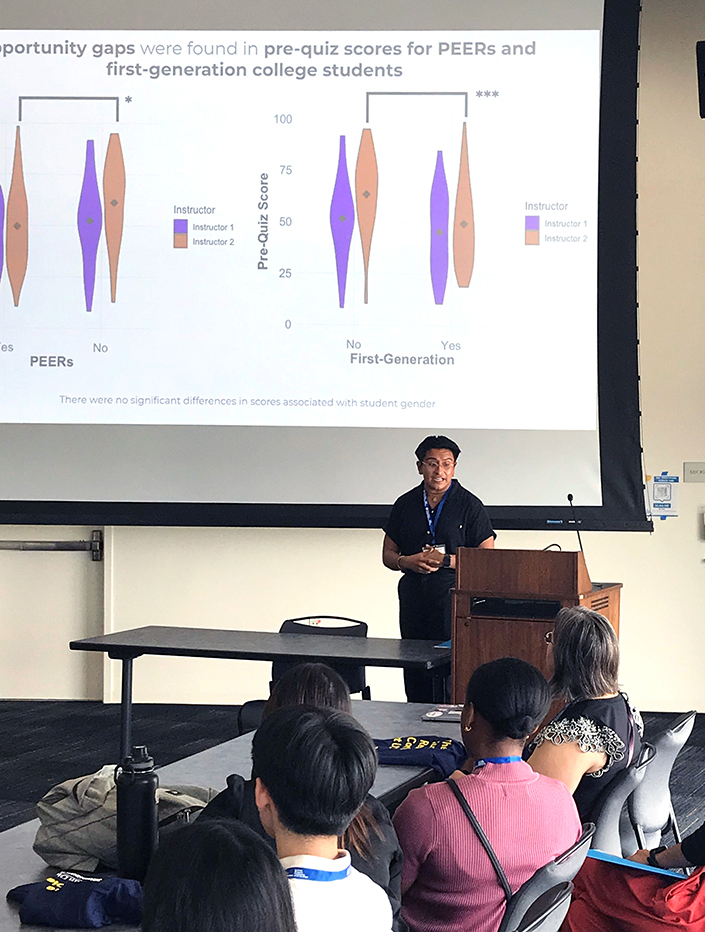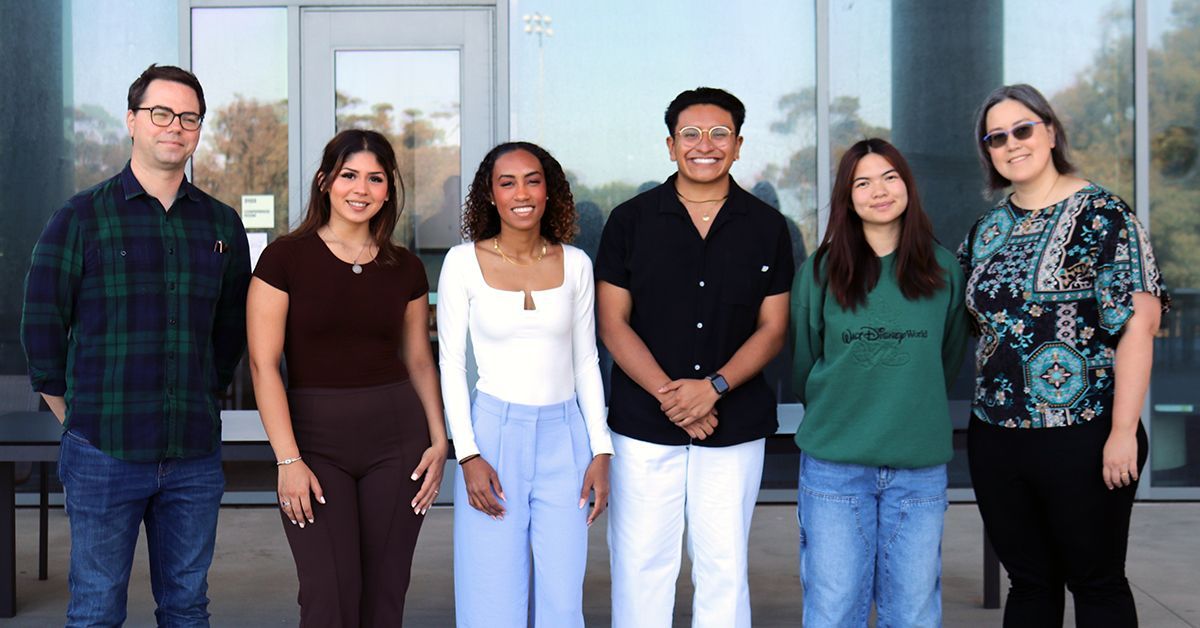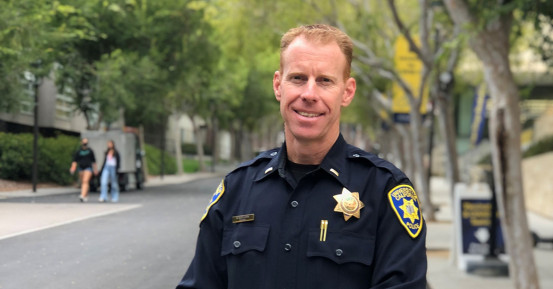How Do We Teach Science? UC San Diego Launches STEM Education Research Program
Three-year diversity-focused initiative furthers UC San Diego’s emergence as a hub for discipline-based education research
Story by:
Published Date
Article Content
As a premier public institution of higher learning, the University of California San Diego is a leader in research, student experience and pedagogy. Now, a new program combines all three by providing a hybrid in-person and virtual academy that gives undergraduate students coveted research experience while also asking them to think critically about how science is taught and to whom.
How do college students learn science, technology, engineering and mathematics (STEM)? What are the obstacles in navigating these rigorous courses? Can STEM classes evolve to be more inclusive of students with diverse backgrounds and experiences?
To help address issues of access and inclusion, as well as other critical gaps in college STEM education, UC San Diego has launched one of the few programs aimed at training students in the emerging field of STEM research education — and it’s done almost entirely online.
Supported by a National Science Foundation Research Experience for Undergraduates grant, the Virtual Education Research in STEM Academy (VERSA) at UC San Diego was launched this summer by Associate Teaching Professor Thomas Bussey in the Department of Chemistry and Biochemistry, Assistant Teaching Professor Melinda Owens in the Department of Neurobiology, graduate student mentor Nkechinyere Iroanusi and several of their colleagues.
The nine-week immersive program kicked off in June in-person at UC San Diego with a STEM education bootcamp, during which students from diverse backgrounds across the country delved into the basics of how people learn; issues involved in diversity and inclusion in education; and discipline-based education research (DBER).
“We wanted to make this program accessible not just to those who wanted to do DBER, but also students who may not have been able to do research in this way previously.”

DBER is an interdisciplinary research approach that uses discipline-specific knowledge and practices to inform educational research about learning and teaching within that discipline. DBER asks participants to develop, refine and implement theoretical and methodological approaches about pedagogy and instructional materials, considering factors that influence learning, as well as the social and historical impacts on education in spaces of learning.
“We wanted to make this program accessible not just to those who wanted to do DBER, but also students who may not have been able to do research in this way previously,” stated Bussey.
“Participation in undergraduate research has consistently been shown to help students stay in school, stay in STEM and get them excited about their work,” said Owens. “But there are a lot of barriers to participating in summer undergraduate research, including whether it’s paid, the duration and if they have to travel. We hope this program is one way we can lower that barrier.”
VERSA students were given a weekly stipend and all travel and housing costs were covered. Of the 184 applications received for the new program, only four students — from Harvard, California State University Sacramento, the University of Georgia and UCLA — were selected to participate in this year’s program. Bussey and Owens will increase the program to 12 students next summer in year two of the three-year program.
After their first week together, students (virtually) conducted their own education research projects with the guidance of an assigned mentor. They also participated in professional development activities such as journal clubs, guest research seminars, professional and academic trainings and virtual social activities. During the final week, the students met in-person and showcased the results of their research during a UC San Diego Summer Research Conference.
“I applied to this program because of my interest in contributing to a body of work that aims to improve science pedagogy,” said Alfonso Godínez Aguilar, a fourth-year Harvard University student and an inaugural VERSA program student. “From my own experiences as a student and educator, I saw a great need for research on how we learn science, how we teach science and how to create educational spaces that cultivate an equitable and diverse classroom environment.”
“Participation in undergraduate research has consistently been shown to help students stay in school, stay in STEM and get them excited about their work."
The VERSA initiative and other efforts around campus are propelling UC San Diego’s leadership in the growing DBER field. The university is becoming a nexus for DBER with experts and researchers spread among departments across campus.
“Paying attention to the way we teach science is important,” says Owens. “Better ways of teaching allow others to shine through and sets the stage for science becoming more inclusive in the future.”
Discipline-based education research is also transforming long-standing ideas about what makes an effective teacher. Traditional beliefs have indicated that experts in research will automatically translate to effective educators.
“In academia there is a misperception that if you have expertise in a discipline it translates to becoming an expert in teaching and education,” said Bussey. “We’d like to change the idea that when you become an instructor you just keep doing what you have been doing up to that point.”
Godínez Aguilar’s VERSA research project, “Using a chemistry intervention to mitigate equity gaps in an introductory biology course,” took him on a challenging deep dive into raw data and numbers.
“My experience in the VERSA program taught me a lot about how to think and reason like a scientist,” said Godínez Aguilar. Under the mentorship and guidance of his mentors, Owens and Assistant Teaching Professor Claire Meaders, Godínez Aguilar says he was able to develop the necessary skills to analyze the data and draw conclusions from it.
“I know these skills will continue to be useful way beyond the scope of my research project,” he said. “VERSA has made me consider science education research as a serious career path, and I’m now looking at science education PhD programs — something I would never have considered prior to taking part in VERSA.”
Bussey and Owens hope VERSA serves as a model for future research experience undergraduate programs, and helps the field of DBER become more top of mind to broad populations of students.
“I applied to this program because I thought it would be an excellent opportunity to continue my journey in the field of educational research,” said Lia Sanchez, a fourth-year student at the University of Georgia. “During my time with VERSA this summer we had a lot of conversations about potential future career options and graduate school options as well. I was able to learn a lot through this and it opened my eyes to more options that I could consider for my future.”

Share This:
You May Also Like
Stay in the Know
Keep up with all the latest from UC San Diego. Subscribe to the newsletter today.




